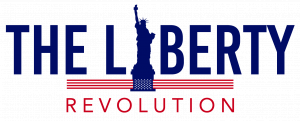Kelly McKernan’s artwork, painted with acrylic and watercolor, pulsates with color and energy, often spotlighting female forms painted in vivid greens, blues, pinks, and purples. McKernan describes their style as “surreal and ethereal,” capturing the uneasy nature of human existence.
Interestingly, “human” carries a deeper meaning for McKernan today. Making a living as a visual artist has never been easy; the pandemic only exacerbated those challenges. Now, McKernan perceives a new, non-human threat to their craft: artificial intelligence.
About a year ago, McKernan (who prefers the pronoun “they”) started spotting online images strikingly reminiscent of their unique style. It seemed these images were produced by inputting their name into an AI tool.
Residing in Nashville and aged 37, McKernan, a multifaceted artist involved in traditional and digital art, soon discovered that businesses were inputting artworks into AI systems to “educate” them in image creation. This futuristic notion has now become a grave concern for artists globally.
McKernan shared, “People would mention me on Twitter, saying how a generated image resembled my work. It was unsettling. I even appealed to these companies. But, all my efforts were met with silence.”
McKernan and two other artists have taken legal action against AI companies that produce images on demand. Their case, pending in a San Francisco federal court, questions whether these companies violate copyright by processing countless images to generate a unique output.
McKernan remarks, comparing the scenario to a David versus Goliath battle, “It’s painful to see someone else profit off my work. I barely manage to make ends meet, and it feels unjust.”
The ongoing lawsuit might set the tone for future legal battles, determining how challenging it might be for various creators to protect their original works from AI exploitation.
Initiated in January, this lawsuit, filed by Sarah Andersen and McKernan, Karla Ortiz, against Stability AI, pins the London-based company for their text-to-image generator, Stable Diffusion. The filing also mentions another image generator, Midjourney, and the digital platform, DeviantArt. They contend that these AI tools infringe on artists’ rights by using vast amounts of digital artwork and producing versions that compete with the original pieces.
While the artists aren’t fundamentally against AI, they stress the importance of ethical utilization. They seek legal recognition and action against any unauthorized usage of their creations.
Stability AI, when approached, chose to remain silent. They’ve asserted in their legal documents that they generate entirely novel images based on basic textual cues and that there’s minimal resemblance to the original training data.










